By Tom Tracy - Florida Catholic
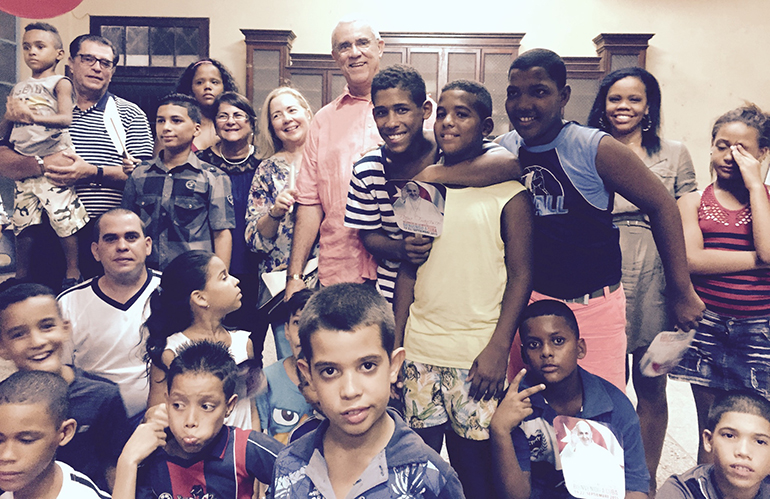
Photographer: COURTESY PHOTO
Sept. 19, 2015 COURTESY PHOTO Andy Gomez, back center, and his wife, Frances Serantes Gomez, pose with some of the children and teenagers who benefited from his family's donations to La Merced parish in Havana. Parishioners threw a party for him and his in-laws, Virginia and Tony Rivas, far left, rear.
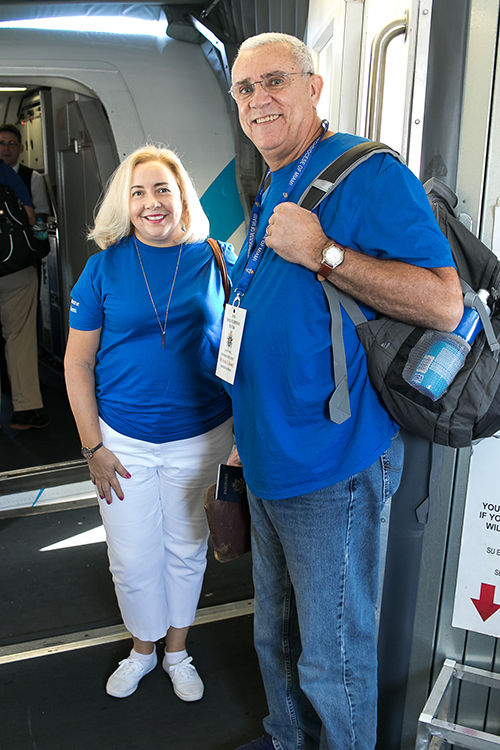
Photographer: TOM TRACY | FC
Andy Gomez and his wife, Frances Serantes Gomez, prepare to board the charter flight for Havana.
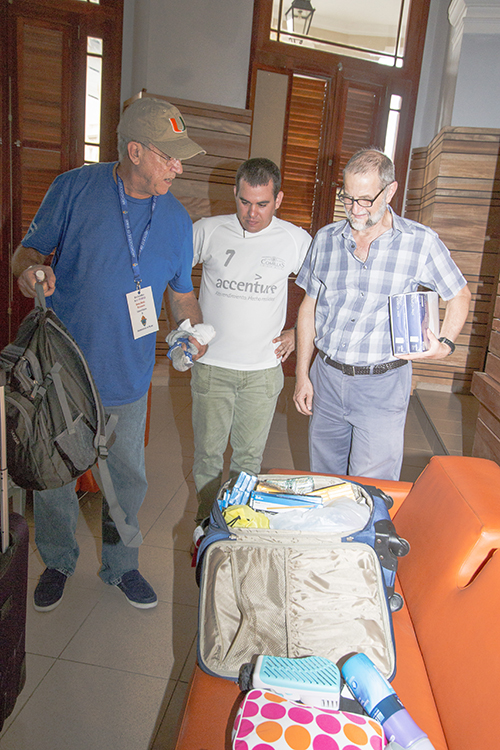
Photographer: ANA RODRIGUEZ-SOTO | FC
Andy Gomez, left, delivers donations to Father Gilbert Walker, right, of La Merced parish in Havana, after arriving at the hotel. Between them is Cuban seminarian Luis Leal.
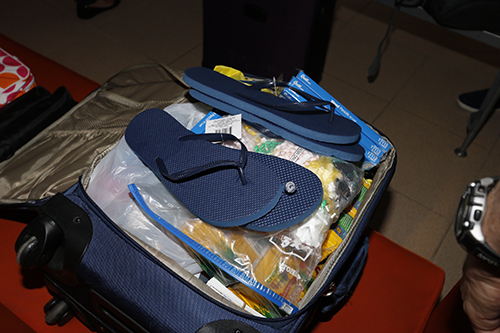
Photographer: ANA RODRIGUEZ-SOTO | FC
Flip flops, rosaries, medicines and pencils and paper were among the items Andy Gomez brought to donate to Father Gilbert Walker for his parishioners at La Merced parish in Havana. The flip flops and rosaries had been given to many of the Miami pilgrims for distribution to churches in Cuba, and they also were asked to bring a gallon-size bag of over the counter medicines to leave with the churches in Havana.
HAVANA | In just three short years, since he was in Cuba for Pope Benedict XVI’s 2012 visit, retired academic Andy Gomez said he sees an alarming uptick in poverty and urban decay in the island nation’s capital.
A retired assistant provost and dean of international studies at the University of Miami, where he was also a senior fellow at UM’s Institute for Cuban and Cuban-American Studies, Gomez, his wife and several hundred South Florida Catholics traveled to Cuba in September in support of the historic visit of Pope Francis to the island.
After a chance meeting with Cuban seminarians in 2012, Gomez developed a personal friendship with the clergy and staff at one of Havana’s oldest and most historic parishes, Santuario de Nuestra Señora de la Merced, a shrine in Old Havana dedicated to Our Lady of Mercy.
With his wife Frances Serantes Gomez and another couple who are part of their extended family, he delivered donations of humanitarian aid and religious items to the parish. He also had a chance to meet with local families, including youth and elderly who benefit from La Merced parish’s outreach.
“We were taken aback by the poverty around the neighborhood,” Gomez said, following a parish event and meal for local families held at La Merced on the Saturday before the papal Mass with Pope Francis in Havana. “They had to turn back families and kids that night because there was not enough room.”
Gomez and others were invited to the program by Father Gilbert Walker, an American priest from Gulfport, Mississippi, who has been a missionary in Cuba since 2003. The priest belongs to the Vincentians order founded by St. Vincent de Paul.
“They put on a nice show for us, and we talked to the kids, the families, we brought them rosaries,” said Gomez, adding that his own extended family in Miami have agreed to help support the parish and its community outreach — even if they are not all ready to travel back to Cuba.
Their efforts support a social worker and psychologist who work with youths from broken families, helping them adjust to Havana’s hard economic realities. The parish also offers an elderly care and a youth nutrition program.
Gomez said that a modest expansion of the tourism industry in Old Havana is not enough to diminish the economic realities seen along city streets around La Merced and many other neighborhoods. He thinks more American parishes should put aside politics and adopt a parish somewhere in Cuba as a Catholic gesture of charity.
Parish programs, he said, need clothing, shoes, school supplies, air conditioning units, basic medical supplies and nutritional support.
“I found the poverty in Havana shocked me. Sure there are hotels and restaurants but those are owned by the government: those Cubans who have access to tourists can make ends meet a little better but I cannot imagine how bad things really are in Havana.”
“I also found more Cubans traveling from the interior to the urban center to see if their lives can improve a little. Those little homes around La Merced now house around 10 to 15 people,” Gomez said, adding that he hopes to invite Father Walker to visit Miami later this year.
Not all members of the extended Gomez family, he said, wish to travel to Cuba, but they do support his efforts, and he insists there is no political agenda — only a wish to help people in need.
“The Church at the local level is doing a tremendous job in meeting some of those basic needs that the government can no longer meet,” he said. “There is a lot of work that needs to be done in Cuba. Probably 60 percent of Havana needs to be torn down, and who is going to pay for those repairs?”
Gomez said his conversations with Cuban young adults indicates an alarming lack of confidence in the Cuba’s future and that they want to leave Cuba for better opportunities. “They realize that politically nothing is going to change and now they will have to struggle more as the government cuts back.”
“I hope that this parish program continues to grow and that it continues to grow bridges in their local community, that it helps these kids with what they face every day,” he said.
“They were innocent, their families were very welcoming. When they asked me to speak I said that I don’t come with a political agenda. We come with open arms to help them in any way we can and not tell them what to do.”
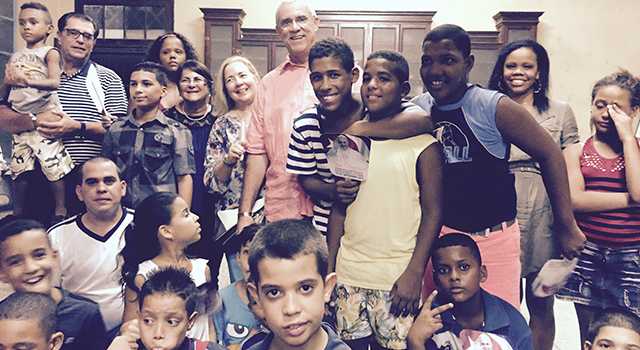

Comments from readers